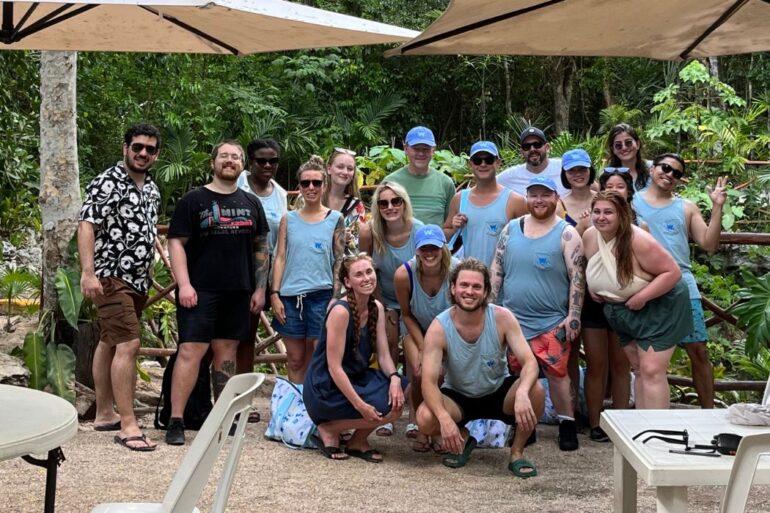Like many of its peers, Toronto-based will and estate planning software startup Willful is now targeting efficient growth.
The technology startup set out last year to raise a Series A round, according to co-founder and CEO Erin Bury, but after facing challenging market conditions, Willful adjusted its strategy and scaled back its fundraising target, ultimately closing $1 million CAD in the fall.
“We really wanted to focus on building a healthy, profitable business, and to use funding strategically to make big bets or investments beyond what revenue can fund.”
Erin Bury, Willful
“We paused to ask what the future of Willful looked like, and realized that we really wanted to focus on building a healthy, profitable business, and to use funding strategically to make big bets or investments beyond what revenue can fund,” she said.
Since closing its seed extension in 2021, Willful has been busy, expanding its product, moving into new provinces, securing partnerships, investing in regulatory relationships, and helping tens of thousands of Canadians build their end-of-life financial plans.
According to Bury, Willful is now “Canada’s leading online will provider” in terms of enterprise partners, search rankings, and monthly traffic.
Willful’s latest round was led by existing backer, Montréal’s Tactico, with participation from new investor Baycrest Hospital via its Centre for Aging and Brain Health Innovation, and ex-Shopify angels, among others. The all-equity, all-primary round brings Willful’s total equity funding to more than $2.5 million.
Bury said that this round was “not really meant to be a Series A.” She declined to share Willful’s latest valuation but claimed it was higher than both its $800,000 equity seed round in 2020 and its $750,000 convertible note seed extension in 2021. Willful intends to use this capital to support continued product expansion, help influence digital will legislation, and invest in partnerships, like its latest deal with Scotiabank.
Founded in 2017 by Bury and her husband, the startup’s head of research and innovation Kevin Oulds, Willful offers a suite of digital estate planning tools that Canadians can use to create a legally valid will and power of attorney documents from home in 20 minutes or less. After launching in Prince Edward Island and Newfoundland this January, Willful’s platform is now available in all 10 Canadian provinces, including Québec, where it offers “fully bilingual” software.
RELATED: Willful’s Erin Bury shares how to prepare for parental leave as a founder
Since its launch, Willful has helped over 150,000 Canadians create over 300,000 documents. By teaming up with Scotiabank, Willful hopes to help even more. “We’ve seen a lot of interest from financial institutions who are looking to offer digital estate planning resources to their clients,” said Bury, who noted that while banks typically help high-net-worth clients with estate planning and settlement, many do not provide solutions for average Canadians.
“My first bank account was with Scotiabank, and I’ve long admired their value prop of helping you find untapped value in your resources,” said Bury. “It makes a lot of sense to team up to ensure their clients maximize the value of their estate, in addition to maximizing the value of their finances now. We also believe Willful can help banks facilitate the massive wealth transfer that is happening between Baby Boomers and their heirs.”
This Scotiabank deal marks Willful’s second partnership with a big Canadian bank after it began working with CIBC in July 2021. Scotiabank said it decided to partner with Willful to make it easier for Canadians to get a will and other estate planning documents online. As part of this deal, Scotiabank clients will receive 20 percent off of Willful plans, which start at $99.
RELATED: Willful lands Dragon Michele Romanow in new $750,000 round
On the product development front, Willful is working to build additional flexibility into its core platform—including flexible payment options like Klarna—as well as allow folks to organize more of their wishes outside of the will and ensure as much of the process is digital as legislation allows.
Willful, which currently has 19 employees, went fully virtual in 2022, no longer has a physical office, and has scaled back its hiring plans to fit with its “managed growth path.” Bury expects the firm to be profitable going forward, starting with its next fiscal year, which begins July 1.
“We’ve seen even traditional [venture capitalists] place a heightened importance on profitability—gone are the days when you can run an extremely unprofitable business that burns cash every month in pursuit of long-term growth,” said Bury. “Most investors we spoke with last year are focusing more on healthy businesses that have great long-term prospects.”
Feature image courtesy Willful.


